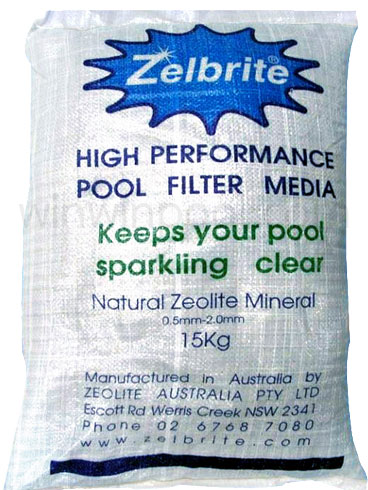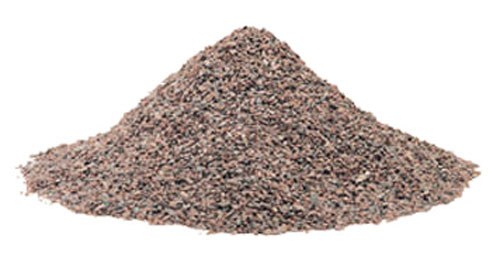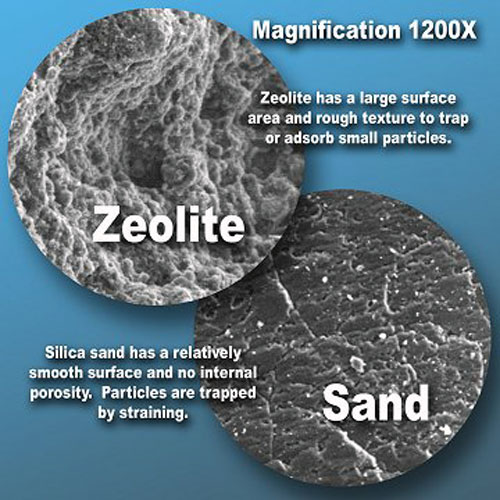Zelbrite for Outstanding Swimming Pool Filtration
2764 Views |

What is Zelbrite ?
 | Zelbrite is an advanced filtration material that outperforms the traditional pool filtration mediums of sand and Diatomaceous Earth. It is manufactured from zeolitic material which is formed as a result of volcanic activity. There are a range of different zeolitic materials produced with varying properties. The key active ingredient in Zelbrite is the mineral clinoptilolite. Clinoptilolite has a proven scientific track record in water treatment and Zelbrite now brings these advanced filtration features which produce superior water quality and economic benefits, to the pool and spa industries. |
EXCEPTIONAL FILTRATION CAPABILITY
PRODUCT FEATURES
|  |
How Zelbrite works ?
 |
|
3 Mechanisms in 1 Filtration
Physical Filtration + Surface Adsorption + Chemical Capture

These properties enable three mechanisms to interact to produce superior filtration.
First there is physical capture between particles as occurs in conventional sand filtration.
Secondly there is capture of pollutants onto the very extensive surface area of Zelbrite by adsorption. Chemical pollutants such as ammonia are captured by the third mechanism of cation exchange.
The result these three mechanisms working together is superior water quality not matched by traditional methods of pool filtration.
Choose Zelbrite - The Best Filtration Medium
Zelbrite vs Sand Filter vs Diatomaceous Earth
| Medium | Zelbrite | Sand Filter | Diatomaceous Earth |
|---|---|---|---|
| Character | "Zelbrite" used continuously for many years | Sand used continuously for many years | Diatomaceous Earth replaced after every backwash |
Filtration Efficiency | Excellent | Good | Good |
| Filters To | 2-3 microns | 15 microns | 5 microns |
| Multiple Mechanisms | |||
| Removes Ammonia | |||
| Reduces Chloramines | |||
| Convenience | Excellent Simple backwash | Excellent Simple backwash | Not so convenient Backwash to also remove unused DE |
| Operating Cost | remove unused DE Operating Cost as virtually permanent medium * | Low as virtually permanent medium | Medium requires regular replacement of DE |
crdit:poolspa
